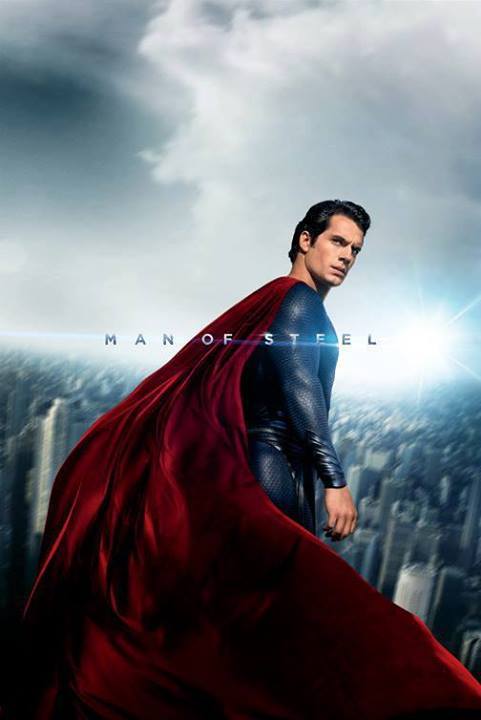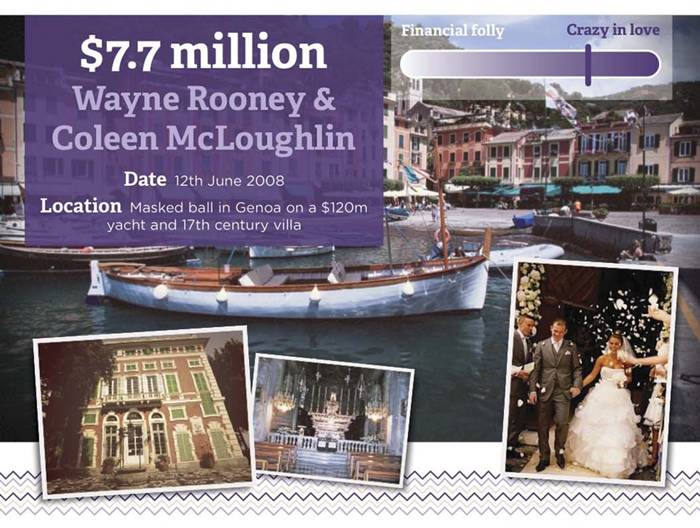20. Buenos Aires
Urban area: 13.5 million people
City: 2.9 million people
According to the 2012 edition of Demographia's World Urban Areas index,
the capital of Argentina is the second largest urban area in South
America after Sao Paulo. Its per capita income is among the highest in
Latin America and its quality of life is ranked number one in the
region, although some estimates say that 4 million people in the area
live in poverty. It is also reportedly the most visited city in Latin
America.
Urban Detail — Buenos Aires is known for its European style architecture
and culture, a legacy of the Spanish and Italian origins of most of the
population. It has the highest concentration of theatres in Latin
America and is the birthplace of Tango music and dance. (Source:
Reuters)
19. Karachi, Pakistan
Urban area:13.8 million people
City: 13.0 million people
Students attend a rooftop evening class in a private school in a slum
area in Karachi, the largest city, main seaport and financial center of
Pakistan. Karachi is the second largest city proper in the world after
Shanghai and accounts for about 20 percent of Pakistan’s GDP. It is
growing rapidly due to rural-urban migration.
Urban Detail — After Pakistan won independence from the British and
separated from India Karachi’s population increased hugely as hundreds
of thousands of Muslim migrants from India settled there, transforming
its demographics and economy. (Source: Reuters)
18. Kolkata, India
Urban area: 14.4 million people
City proper: 4.5 million people
Kolkata, formerly Calcutta, sits on the banks of the River Hooghly which
empties into the Bay of Bengal. The city is India’s oldest port and the
commercial and cultural capital of East India, with the third largest
economy in South Asia after Mumbai and Delhi. Here Kolkata students
smear each other with colored powder during Holi, the Indian festival of
colours heralding the beginning of Spring.
Urban Detail — Much of the city was originally wetland and swamp. The
land was reclaimed over the centuries to accommodate the rapidly
increasing population. Kolkata is where Mother Teresa began her work
caring for the poor and the sick. (Source: Reuters)
17. Los Angeles, USA
Urban area: 14.9 million people
City: 3.8 million people
Los Angeles is the second biggest city in the United States by land
size. An extensive grid of freeways, boulevards, and smaller
neighborhood roads spans the city.
Urban Detail — Los Angeles is home to the largest Mexican, Guatemalan,
and Korean populations outside of those countries. Almost 40 percent of
the city’s population was born outside the United States. (Source:
Reuters)
16. Dhaka, Bangladesh
Urban area: 15.4 million people
City: 7 million people
One of the fastest growing cities in the world, Dhaka has attracted
economic migrants from all over Bangladesh. As many as one quarter of
Dhaka’s residents live in crowded slums, according to the World Bank.
Urban Detail — Dhaka is known as the rickshaw capital of the world as
most people get around using cycle rickshaws or autorickshaws. (Source:
Reuters)
15. Moscow, Russia
Urban area: 15.5 million people
City: 11.8 million people
By far Europe's biggest city, Moscow has been swelled by rising numbers
of migrants from other parts of Russia and the former Soviet states,
attracted by higher living standards. Russia’s expanding economy has
attracted people to the capital which is becoming richer.
Urban Detail — With more passengers than New York City and London
combined, Moscow has the world’s second busiest metro system after
Tokyo. It serves more than nine million people a day, has 182 stations,
and 301 kilometers (187 miles) of routes. (Source: Reuters)
14. Guangzhou-Foshan
Urban area: 16.8 million people
City: 11 million people
Historically known as Canton, Guangzhou is China’s third largest city
and located on the Pearl River in southern China about 120 kilometers
northwest of Hong Kong. It is a critical trading port and capital of
China’s industrial and manufacturing province of Guangdong, which has
been one of the fastest urbanizing areas of the world for many years.
Urban Detail — Ahead of the Asian Games in 2010 many buildings were
demolished to make way for more modern developments as property prices
soared and developers poured billions into real estate. (Source:
Reuters)
13. Mumbai, India
Urban area: 16.9 million people
City: 12.5 million people
Mumbai–called Bombay until the name was changed in 1995–is the
commercial and movie capital of India and has attracted millions of
migrants from the countryside. With high birth rates and the continued
influx of migrants, Mumbai’s population is expected to grow rapidly in
the future.
Urban Detail — Over half of the city’s population lives in slums. Poor
infrastructure and widespread poverty make it very difficult to meet the
demands of an ever-growing population. (Source: Reuters)
12. Osaka-Kobe-Kyoto
Urban area: 17 million people
City: N/A
Made up of the commercial and industrial city of Osaka, the port of
Kobe, and the ancient cultural capital of Kyoto, the Kansai megacity
encompasses all aspects of Japanese life from the neon lit Dotonbori
shopping district in Osaka pictured here to the Zen gardens and geisha
houses of Kyoto and is home to about 15 percent of Japan’s population.
Urban Detail — Large parts of the city of Kobe were destroyed in the
Great Hanshin Earthquake of 1995 which claimed over 6000 lives and
caused about 100 billion dollars in damages. The disaster was widely
seen as a major wake up call for the Japanese emergency services and led
to improvements in construction that paid dividends during the massive
2011 earthquake. (Source: Reuters)
11. Beijing, China
Urban Area: 17.3 million people
City: 11.7 million people
China’s capital hosted a spectacular if controversial Olympic Games in
2008. Despite spending billions to clean the city's air, average air
pollution levels remain five times above WHO safety standards.
Urban Detail — Bicycles are a common means of transportation for most
people in Beijing. But the number of cars is increasing by an estimated
15,000 every day. (Source: Reuters)
10. Cairo, Egypt
Urban Area: 17.8 million people
City: 6.7 million people
Located on the banks of the Nile River, Cairo is the biggest urban area
in Africa and in the Arab world. Bustling bazaars and narrow lanes, the
smells of spices and pipe smoke, the call to prayer five times a day and
the cacophony of horns–this is Cairo.
Urban detail — The city is also known by the name “Al-Qahirah”, “The
Triumphant” in Arabic. It is home to the oldest and biggest music and
film industry in the Arab world. (Source: Reuters)
09. Mexico City, Mexico
Urban area: 19.4 million people
City: 8.8 million people
Mexico City is ten times the size it was in 1940. The Mexican capital
generates a quarter of the country's wealth. However, with low
population growth, the number of people in retirement is expected to
rise rapidly.
Urban Detail — Security, air pollution, and traffic congestion are prime
concerns in Mexico City. These problems result from poor resource
management and unstructured growth. (Source: Reuters)
08. Sao Paulo, Brazil
Urban area: 20.2 million people
City: 11.2 million people
Sao Paulo is Brazil’s richest city and the most important financial
center in Latin America. Poverty and crime, however, remain a problem.
An average of 6,000 people are murdered annually in Sao Paulo.
Urban Detail — Sao Paulo is a very young and ethnically diverse city.
More than half of its population is under twenty years old, and it is
home to the largest Japanese community outside Japan. (Source:
Shutterstock)
07. New York, USA
Urban area: 20.4 million people
City: 8.2 million people
New York City, especially Manhattan, is a role model for balancing dense
development with good public transport and access to open spaces. New
York is the only American city where most households do not own a car.
Urban Detail — New York has been a gateway to America ever since the
first immigrants came to the U.S. Over 170 languages are spoken there
today. No single nationality or ethnicity dominates the city’s
culturally diverse population. (Source: Reuters)
06. Shanghai, China
Urban area: 20.8 million people
City: 17.8 million people
Shanghai has become China's financial and commercial center and is
ranked as the planet's largest city proper. It has one of the world’s
busiest ports and the world’s most extensive bus system with more than
one thousand lines.
Urban Detail — Shanghai has one of the world's most remarkable skylines.
Thirty five structures are taller than 200 meters, including two over
450 meters, the Oriental Pearl TV Tower and the Shanghai World Financial
Center. (Source: Reuters)
05. Manila, Philippines
Urban Area: 21.9 million people
City: 11.8 million people
Manila's colonial past is reflected in its architecture. Intramuros, the
historic center, is surrounded by a massive wall built by the Spanish
in the 16th century. Its parks and historic buildings have become a
major tourist attraction.
Urban Detail — More than 3 million people in Manila live in slums
without electricity, sanitation, and access to drinking water.
Population density is extremely high, in some areas more than 100,000
people live on one square kilometer. (Source: Reuters)
04. Delhi, India
Urban Area: 22.2 million people
City: 11 million people
Delhi is India’s capital and recently overtook Mumbai as the biggest
city by population size. It’s a place of striking contrasts. Mosques,
bazaars, and narrow lanes mark the old town. New Delhi, the capital,
features grand boulevards, business centers, and shopping malls.
Urban detail — Twenty languages are spoken in Delhi. The official and
most widely spoken language is Hindi, followed by Punjabi. English is
used for business and other official purposes. Urdu is common among the
Muslim community. (Source: Shutterstock)
03. Seoul-Incheon, South Korea
Urban area: 22.5 million people
City: 10.5 million people
Seoul has grown rapidly since the Korean War (1950-53). Today, nearly
half of the country’s population lives in and around Seoul. Seoul has
made remarkable progress in combating air pollution and is one of the
cleanest cities in Asia.
Urban Detail — Seoul is located 50 kilometers south of the heavily armed
border with North Korea. The city is in range of North Korean
artillery. Plans to move the capital further south have already caused
much debate. (Source: Reuters)
02. Jakarta, Indonesia
Urban area: 26 million people
City: 9.6 million people
Jakarta has been booming since 2005 after suffering economic crises and
disasters like floods and earthquakes in recent decades. Jakarta's
economy has boosted Indonesia’s economy to a growth rate of 6 percent.
Urban Detail — Despite many wide roads, Jakarta suffers from terrible
traffic congestion. To reduce traffic jams, some major roads have a
'three in one' rule during rush hours, prohibiting fewer than three
passengers per car. (Source: Reuters)
01. Tokyo, Japan
Urban area: 37.2 million people
City: 8.9 million people
Greater Tokyo is the largest urban agglomeration in the world,
swallowing up the neighboring cities of Yokohama, Kawasaki, and Chiba.
Despite its size, Tokyo has very efficient public transportation, which
accounts for almost 80 percent of all journeys.
Urban Detail — Tokyo Bay has been gradually filled up to create more
living space. Odaiba, an island made from waste, has become one of
Tokyo’s most interesting tourist spots and destinations for day
trippers. (Source: Miki Yokoyama)


























































